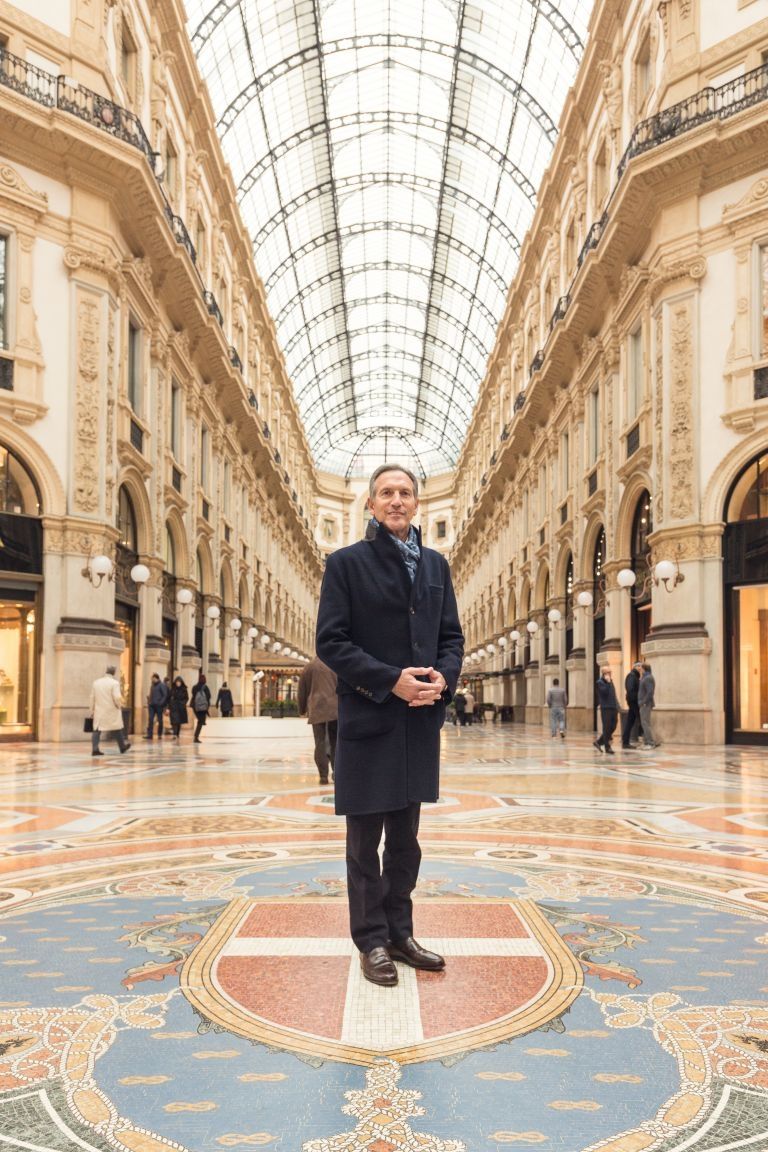 Starbucks CEO Howard Schultz in Milan. – AFP pic, February 29, 2016.Starbucks has announced plans to go where few multinational coffee chains have gone before: Italy.
Starbucks CEO Howard Schultz in Milan. – AFP pic, February 29, 2016.Starbucks has announced plans to go where few multinational coffee chains have gone before: Italy.
It's the final frontier for the American coffee giant and a move that will be eyed with interest – and suspicion.
The opening of Starbucks' first outpost in Milan, scheduled for early 2017, will mark a turning point not only for the brand, but for CEO Howard Schultz, who credits his first trip to Milan more than 30 years ago with birthing his entire modus operandi.
It was in Milan that the entrepreneur would be awakened to the theater, art and romance of coffee-making. Italy's coffee culture would go on to serve as the model for what would become one of the most powerful coffee chains in the world.
But therein lies the catch.
How will an American coffee chain be received in a country where coffee is almost a religion unto itself? Where it is ritualised, revered and serious business among both the baristas who serve it, and the consumers who sip it?
Add to that a certain Italian mindset in which any culinary deviation from tradition or authenticity is viewed as sacrilegious, and the potential for backlash could be huge.
Which is why Schultz is cautious when speaking about the opening, saying the company will open “with tremendous humility and great respect for the culture."
"We know that we are going to face a unique challenge with the opening of the first Starbucks store in Italy, the country of coffee, and we are confident that Italian people are ready to live the Starbucks experience, as already occurs in many other markets," added Antonio Percassi of Percassi, the licensee and Starbucks partner that will help the brand ease its way into Italy.
Starbucks' foray into Italy comes after testing the caffeinated waters in another European country where coffee is embedded into its culture.
After opening its first store in Paris with trepidation in 2004, the green and white logo has become ubiquitous across the capital and France, expanding aggressively in train stations, airports and inside some of the most iconic buildings and neighborhoods in the city.
In France, the chain owes part of its success to a formula that brings comfortable, leather cushion chairs and wifi to the coffee-sipping experience that traditional cafés may not offer.
It's only 30 years after experiencing his first coffee epiphany in Milan that Schultz said he feels “intuitively” that the time is now right.
Meanwhile, Starbucks isn't the first multinational chain to dare to go where few have gone before.
In a ballsy move, US pizza chain Domino's opened its first store in Milan last fall, to respond to what they called a void in the local market: fast online pizza orders, customizable toppings and delivery.
Likewise, South Korean bakery chain Paris Baguette dared to open a bakery in the heart of Paris, selling croissants and baguettes made from recipes developed in the Asian country. – AFP, February 29, 2016.

Comments
Please refrain from nicknames or comments of a racist, sexist, personal, vulgar or derogatory nature, or you may risk being blocked from commenting in our website. We encourage commenters to use their real names as their username. As comments are moderated, they may not appear immediately or even on the same day you posted them. We also reserve the right to delete off-topic comments